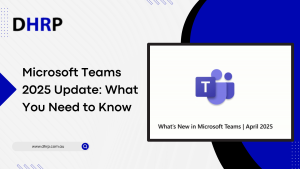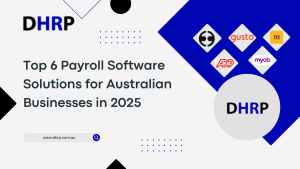If you own a small business, you have a long way to go before having a set of policies that benefit your company. So, before you worry about it, we can help you understand the HR and payroll compliance legislation in Australia which is necessary even for small business decisions.
So, what is HR compliance? Or what are the payroll compliances, and how do you ensure payroll compliance? This blog has all the answers you need.

HR
National Employment Standards and Awards
Modern awards are an important part of Australia’s employment landscape coupled with the National Employment Standards (NES). “The Modern Award sets employees minimum pay and terms and conditions; therefore, it is crucial to know what your people apply to them. You have to respect the other criteria of the award, including the proper allowances for leave, penalty rates, and working hours even if you pay over award rates.
Employment Contracts
While employment contracts can be verbal, you’ll be in big trouble if you don’t record an employee’s terms and conditions when you appoint them. Employment contracts prepared in clear English can help you prevent costly and time-consuming complications by clarifying your employees’ legal rights and obligations. The employee’s award, working hours, leave rights, and remuneration must be stated in legally binding employment contracts. An employment contract should also include provisions for terminating employment, safeguarding confidential information and intellectual property, and addressing any post-employment constraints.
Workplace Policies
Clear and uncomplicated policies and practices must be in place in any organization. They protect your organization against a number of hazards like social media, improper use of your computer, discrimination, and harassment. Policies are crucial to your company’s growth and protection against financial risks. A policy is successful only if it is conveyed effectively and universally applied to all staff. That means you have to explain the policy and undertake training, if necessary, to ensure that your employees understand how to comply. Ensure that employees sign a paper that they know and understand the rules.
Independent Contractors
Many small enterprises today rely on entrepreneurs to adjust to changing business conditions quickly. The use of independent contractors enables you to respond faster to short-term developments and increased demand for expertise. Contractors manage their businesses and offer your company services, but you cannot identify someone as a contractor because they have an ABN and specialized skills. In addition, it does not mean just that someone signs a form indicating they are not an employee. When an employee is misclassified as an entrepreneur, they may be entitled to unpaid time off, superannuation, and unfair dismissal.
Performance Management
Even if you have a good cause to fire an employee, it’s crucial to follow the proper procedures. The process, not the facts, is usually what matters in performance management. The Fair Work Commission’s decision-making process in wrongful dismissal cases is based on procedural fairness. If you fail to demonstrate procedural fairness before dismissing an employee, or if your performance management method is defective, the dismissal will almost always be found to be unjust. As a result, while dealing with incidents of poor performance, you must conduct a thorough investigation and keep accurate records.


Payroll
Check out the payroll compliance checklist Australia.
Staying informed
Are you updated with the changing obligations of payroll compliance? The Australian payroll situation has changed dramatically in recent years. Implementing SuperStream and Single Touch Payroll initiatives have fundamentally altered your obligations to your employees and the ATO. With the pace of payroll reform quickening, it’s more critical than ever to be up to date on employment regulations, reporting requirements, and other compliance requirements.
Failure to maintain compliance will hit businesses where it hurts the most: their time and their cash.
Payroll compliance
From 1 July 2019, Australian firms with 19 or fewer employees will be required to comply with the Single Touch Payroll (STP) digital reporting obligation. STP reporting has been optional for firms with 19 or fewer employees since April 1, 2018. If your company has yet to begin STP reporting, it should be a simple process as long as you plan ahead of time.
Employers who are not presently reporting under STP must contact their software vendor to confirm that their payroll software is STP compliant and that your business’s processes have been correctly adjusted. Please visit the ATO website to learn more about STP and your requirements.
Few Tips to Ensure Compliance
Ensure payroll compliance: Many software companies struggled to meet installation schedules after the advent of SuperStream and STP. It’s critical that your payroll software is compliant and that you have enough time to alter your business operations.
Get a self-service model for employees: It is critical to verify that personnel data is accurate. Employees can capture and track their personal information, work hours, sick leave, and time off requests using a self-service interface provided by payroll. This ensures accuracy while also allowing you to focus on other payroll chores. Even if your payroll is outsourced, there are several options for employee self-service portals that can keep your staff engaged.
Consider outsourcing: Examine if an outsourced payroll supplier is responsible for your payroll operation. You could find the easiest solution to keep your payroll to experts. The option to outsource can offer a very significant ROI, depending on the size of your organization. You cannot only save time and money, but you can not focus on your core business by outsourcing payroll.
Implement automation: Payroll software is typically created to assist employers in meeting their legal requirements. Recent changes to Australia’s payroll landscape have been challenging, but well-designed payroll software may help you reduce complexity and unnecessary processes, saving you time.
Examine the full range of features and services provided by your provider. You might be amazed at how easy and time-saving it is to handle your payroll requirements in Australia.
Regulatory Compliance
In today’s digital environment, ensuring your company’s employee and payroll data security is crucial. When you choose to outsource your payroll procedures, you’re giving your payroll vendor the authority to guarantee that the appropriate security measures are in place and that you’re meeting compliance requirements. Here’s a data security compliance checklist to help you avoid the most typical data security blunders, whether you outsource or not:
- Combine your personnel and payroll information.
- Adopt appropriate regulations and guidelines.
- Consider a wide range of data.
- Improve the security of your payment processing.
- Give employees complete access to the information you have on them.
- Keep in mind that personal information is extremely private.
Keeping up to date with payroll compliance
The ATO website offers the truth for compliance with wages and provides the most up-to-date information for employers and payroll experts. Please visit the ATO website for information related to companies and pensions:
The ATO is extremely proactive in advising Australian companies via regular emails and a range of other communication channels about changes in their compliance and reporting duties.
Bottom Line
So, if you are looking for consultants to help you understand HR or payroll requirements in Australia, let the DHRP team be your assistance.





































































































